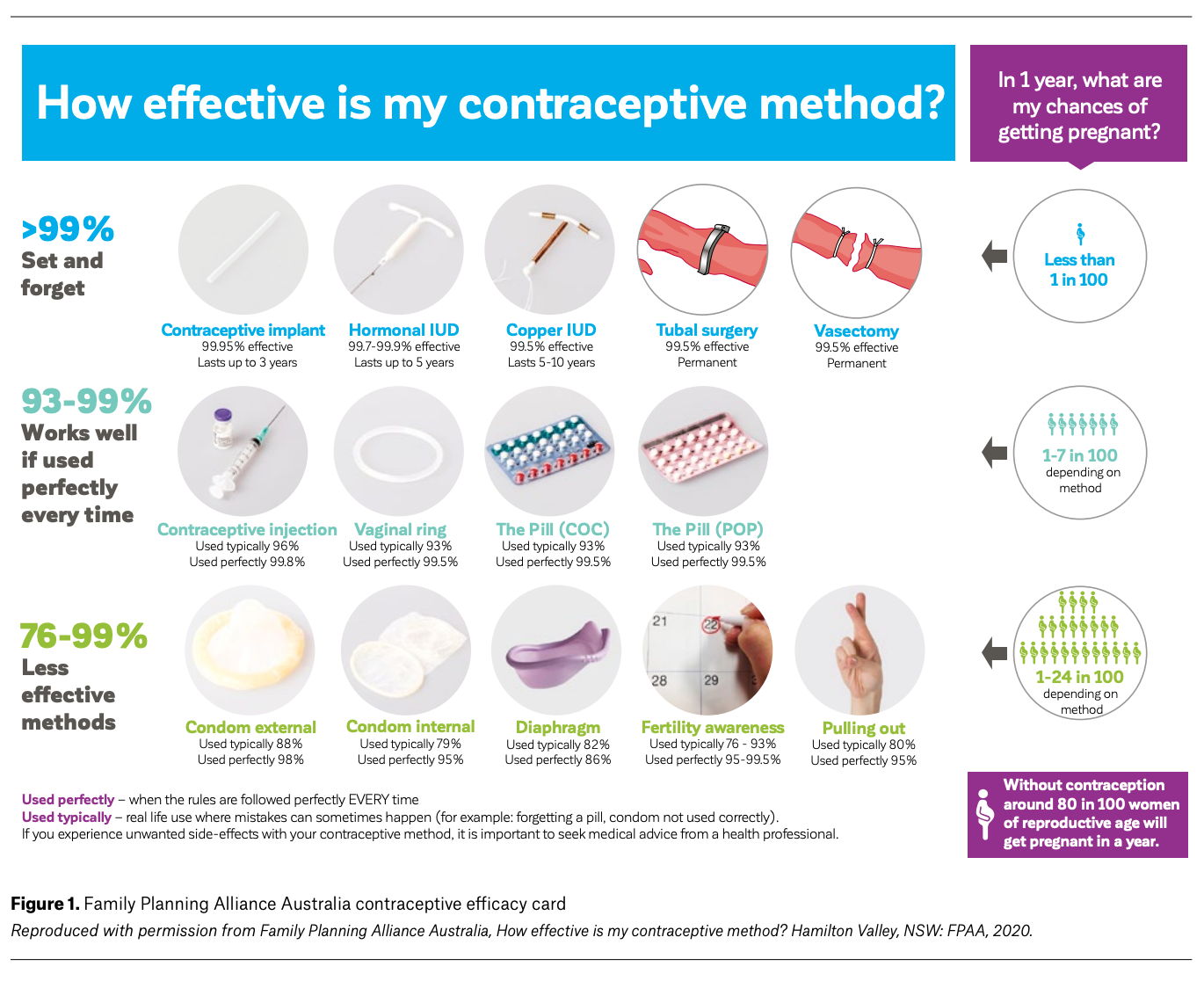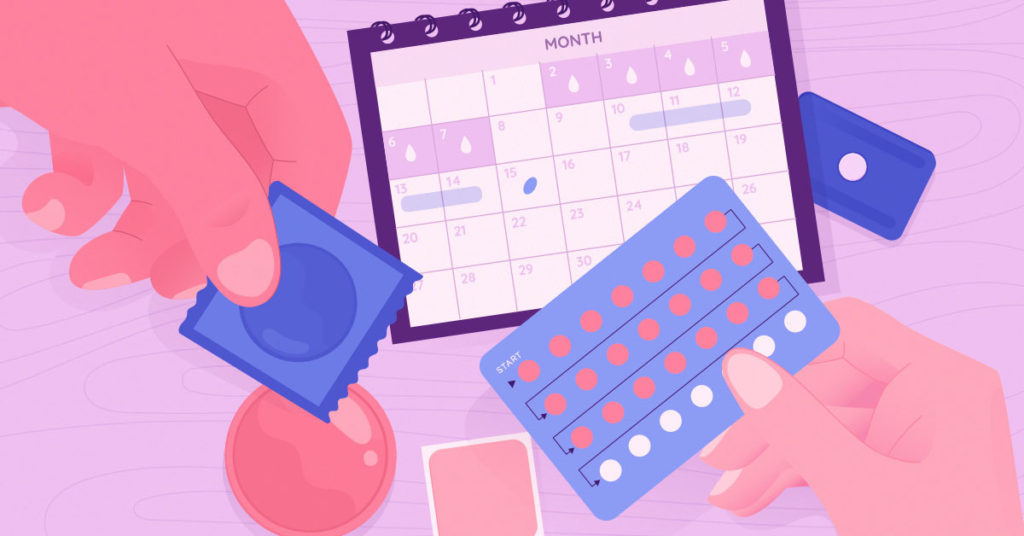Abortion has now been decriminalised in every state and territory across Australia after Western Australia passed legislation last week. The changes mean abortion now falls under WA’s existing health legislation, instead of the Criminal Code. This change marks a significant advancement in reproductive rights and access to healthcare.
Building on this progress, it’s important to address another vital aspect of reproductive health: contraception. Discussing contraception might feel uncomfortable for some, but it’s a critical part of managing one’s reproductive health, especially for international students who might be unfamiliar with the options available in Australia.
To assist you, we have prepared a comprehensive guide on contraception methods accessible in Australia. This guide includes detailed information and answers to frequently asked questions, aiming to equip you with the knowledge needed to make informed choices about your health.
What is contraception?
Contraception simply means using a method or physical tool to prevent pregnancy while engaging in sexual intercourse. Common contraception methods include the intrauterine device (IUD), contraceptive implants and injections, the vaginal ring, the contraceptive pill, condoms and diaphragms.
What are my contraception options in Australia?
In Australia, you have access to a range of contraception options that can help prevent unwanted pregnancies, some of which we’ll go through in more detail below. This chart gives you a good idea of the different types and effectiveness of contraception in Australia.
 All international students can access contraception in Australia. It is important to choose one that best suits your needs and unique circumstances. You can chat with your General Practitioner (GP) or visit your local sexual health clinic if you need advice.
All international students can access contraception in Australia. It is important to choose one that best suits your needs and unique circumstances. You can chat with your General Practitioner (GP) or visit your local sexual health clinic if you need advice.
Many contraception methods require you to chat to your GP first, but some – such as condoms and diaphragms – are readily available at your local supermarket or pharmacy. These types of contraception don’t require a doctor’s referral. Prior to meeting with your GP to discuss your options, you can also use this contraception matchmaker.
It’s also important to know that some contraception options may be covered by OSHC, while others are not. Chat to your OSHC provider for more information.
How do IUDs work?
An IUD is a device that is implanted into a woman’s uterus. It can be a hormone-releasing or copper IUD, and it needs to be inserted by a professional. Once again, your GP can provide advice as to whether an IUD is suitable for you and, if so, which IUD to opt for.
The best part about IUDs is that they can be effective for up to 10 years. This means that once you’ve had one inserted, you won’t need to replace it for a long time (unless, of course, there are any issues after insertion).
IUDs can also be easily removed at any time and your fertility should return immediately. However, IUDs don’t provide protection against Sexually Transmitted Infections (STIs).
How does the pill work?
The combined oral contraceptive pill – commonly called ‘the pill’ – is a popular option that contains hormones designed to help prevent pregnancy. Some women may have already had the pill to help alleviate polycystic ovarian syndrome, acne or heavy periods.
The pill needs to be taken at the same time daily in order to be effective, so you’ll need to stay on top of your schedule to ensure you take it consistently. Note that it doesn’t protect against STIs.
To get access to the pill, your GP will need to write a prescription. The pill can then be purchased from a pharmacy.
Are male condoms a contraception option?
Condoms are considered a barrier method, as they prevent semen from entering the uterus. They are also the only contraception method that prevents both pregnancies and STIs. You can purchase condoms from any pharmacy, and even supermarkets like Coles and Woolworths.
Is the male contraceptive pill available in Australia?
Contraceptive injections and pills are currently not available to men in Australia. Learn more about male contraceptive injections here.
What is the morning-after pill?
In Australia, the emergency contraception pill, more commonly known as the morning-after pill, is taken after unprotected sex to prevent pregnancy.
You can purchase the morning-after pill from your local pharmacy. You will be required to fill in a form and the chemist will guide you on how to take the pill. They can also answer any questions you have about how the pill works and how it affects your body.
The morning-after pill can be taken up to three to five days after unprotected sex (depending on which pill you take), but the earlier you take it, the more effective it is.
Is abortion legal in Australia?
Abortion is legal in every state and territory in Australia, however, gestational limits differ. See your state or territory below for further information:
SA – Abortions can be performed at up to 22 weeks and 6 days of pregnancy. Abortions performed after this time, must be approved by two doctors. Find your closest service by going to the services section on the unplanned pregnancy page.
NSW – Most abortions in NSW are performed under 12 weeks of pregnancy – services for abortion are generally available up to 22 weeks of pregnancy. After that, two doctors must approve the procedure. Find your closest service here.
Victoria – You can access abortion up to a gestational limit of 24 weeks. After 24 weeks, an abortion requires the approval of two medical practitioners. See 1800 My Options to find your closest clinic.
QLD – If you are up to 22 weeks pregnant, you can get an abortion for any reason. After 22 weeks, the law requires that two doctors consider all your circumstances and agree the abortion should be performed. See available services here.
WA – Abortion can be performed up to 23 weeks of pregnancy. After 23 weeks, two doctors must approve the procedure. Find your closest clinic here.
NT – Abortions can be performed at up to week 24 of pregnancy. After 24 weeks, two doctors must approve the procedure. More information available here.
Tas – Abortions can be performed at up to week 16 of pregnancy. Between 16 and 20 weeks, two doctors must approve the procedure. After 20 weeks an abortion can only be performed for medical reasons. See available services here.
ACT – Abortions can be performed at any stage during pregnancy. Find more information on abortion services in the ACT here.
In Australia, there are two methods of abortion available — with surgery or by taking medicine. Both ways are very safe and effective in Australia. Your chosen healthcare professional will discuss which options are available to you, depending on your stage of pregnancy and your individual circumstances and preferences.
As an international student, remember you are not alone and that support is available in Australia. If you do decide that abortion is the right choice for you, there’s plenty of information available to assist you in making your decision. This decision-making guide is a good place to start. Alternatively, you can utilise the services listed at the end of this article. Many of these provide a phone service where you can have a confidential chat with a counsellor.
Is abortion included in OSHC?
To determine if abortion services are covered under your Overseas Student Health Cover (OSHC), you should directly contact your OSHC provider. Generally, many providers start covering abortion-related costs after you’ve been in Australia for at least 12 months. There are instances where some insurers may choose to overlook this waiting period under specific circumstances, but these exceptions are at the discretion of the insurer and require direct discussion.
It’s worth noting that there has been a push towards improving access to reproductive healthcare for students from abroad. A senate inquiry focused on universal access to reproductive healthcare recommended that the Australian Government engage with OSHC providers to update the Overseas Student Health Cover deed to eliminate waiting periods for pregnancy-related care.
What can I do if I can’t afford an abortion?
If you can’t afford an abortion in Australia, Marie Stopes can help you navigate the costs and the process. You can also check out this guide to the costs involved with an abortion.
Where can I seek help with contraceptive options, abortion assistance and more?
- Fact sheets of essential information about reproductive and sexual health, contraception, menstruation and STIs in community languages
- Marie Stopes Australia provides abortion, vasectomy and contraception services nationally
- Youly is an online health platform that allows women to confidentially manage their sexual health, contraception and related needs
- LGBTI-friendly services Australia
- Family Planning New South Wales
- Sexual Health Victoria
For more information regarding sexual health facts for international students, click here.
If this article has caused you distress, we suggest using Reach Out’s Sexual Assault Services Guide or reading through our article on sexual assault and sexual harassment.





